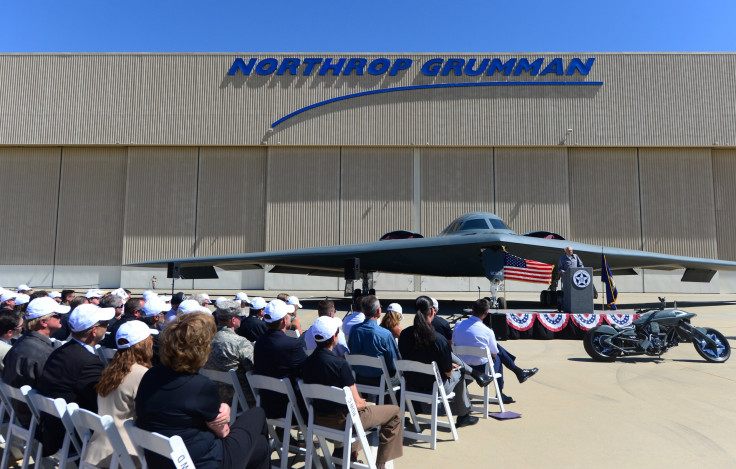Northrop Grumman Wins $80 Billion Long-Range-Bomber Contract; Boeing And Lockheed Martin Express Disappointment

Northrop Grumman has been awarded a contract worth up to $80 billion to build the U.S. Air Force’s next generation of long-range strike bombers, beating off competition from a joint Boeing-Lockheed Martin bid, a U.S. Department of Defense news release said Tuesday evening. The Northrop victory breathes new life into the ailing company, which has been struggling to keep a grip on the combat aircraft market in recent years.
Less than an hour after the announcement, a joint news release from Northrop’s much bigger rivals expressed “disappointment” and suggested they might appeal the Pentagon's decision.
“We will have further discussions with our customer before determining our next steps,” the news release from Boeing and Lockheed stated. “We are interested in knowing how the competition was scored in terms of price and risk, as we believe that the combination of Boeing and Lockheed Martin offers unparalleled experience, capability and resources for this critically important recapitalization program.”
The deal, which is one of the biggest defense acquisition contracts in history -- second only to the $1.5 trillion F-35 Joint Strike Fighter deal awarded to Lockheed Martin in 2001 -- led Northrop stocks to surge in late trading, according a Bloomberg report. The U.S. Air Force is expected to buy 80 to 100 of the new bombers at $550 million per unit.
With $24 billion in sales last year, Northrup was by far the smallest defense company vying for the contract -- and may have needed it the most. Lockheed and Boeing already have a number of warplanes in production and have large enough businesses across the board to be financially insulated from the loss. Northrop, on the other hand, which no longer manufactures combat aircraft since production of its B-2 Stealth Bomber ceased in 2000, has registered significant losses over the past couple of years.
The contract will ease concerns at Northrop’s aviation facility in Palmdale, California, which will likely remain open for the foreseeable future. But Boeing’s St. Louis aircraft manufacturing plant could suffer some job losses. Boeing is slated to continue producing its Super Hornet and F-15 fighter jets only until 2018 and 2019, respectively. After those lines are discontinued, there are no future combat manufacturing deals on the table for Boeing, Defense News reported.
The Pentagon could extend the production of the Super Hornet for another 10 years. But while Boeing's future in combat aircraft looks problematic, Lockheed has fewer worries: The Defense Department has said it plans to continue buying the company's F-35 for the next 35 years.
© Copyright IBTimes 2024. All rights reserved.












